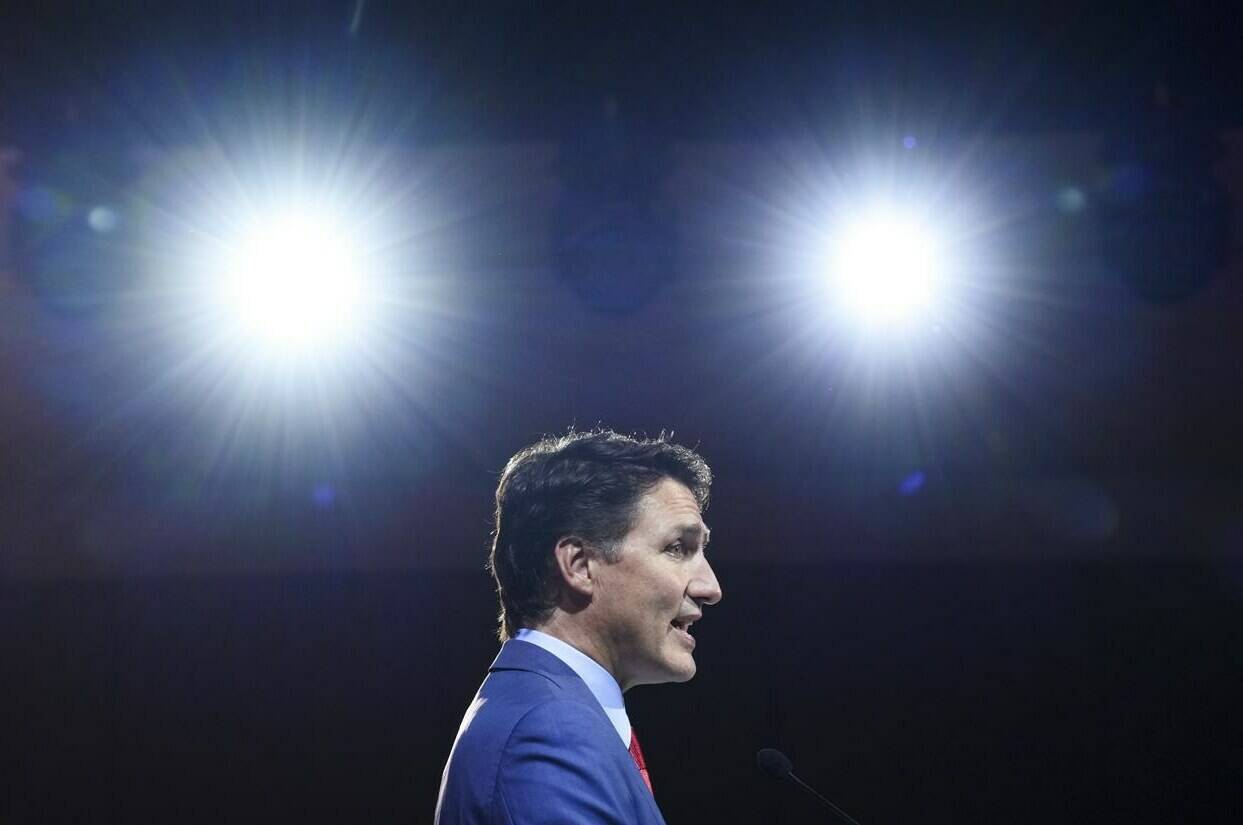Prime Minister Justin Trudeau says Canada’s rocky relations with China have stabilized, while telling business leaders in Singapore that Ottawa has committed to a timeline for trade deals with the region.
“I don’t think the idea of crossing our arms and turning our backs on any part of the world is something that is good for the Canadian economy,” he said Thursday at an onstage event held by Bloomberg.
Trudeau is undertaking a weeklong visit to Indonesia, Singapore and India with a focus on shoring up trade in a region Ottawa sees as key to counteracting coercive economic moves by China.
He noted that his visit comes as western countries co-ordinate their approach to trade with Beijing. Trudeau said that’s a change from competing against each other for export opportunities that China could leverage, such as by limiting trade during diplomatic spats or unwanted human rights discussions.
“They just would play us off each other just a little bit in strategic ways that have been very effective,” Trudeau said.
“We cannot simply be trying to elbow each other out of the way for access to the Chinese market.”
To that end, Trudeau noted that Canada and Indonesia have committed to signing a bilateral trade deal by the end of 2024, and he announced a plan this week to finalize a separate deal by 2025 with the Association of Southeast Asian Nations.
Trudeau’s visit to the city-state comes asSingapore businesses are looking to Canada for ways to reduce greenhouse gas emissions while strengthening global supply chains.
Trudeau held four meetings on Thursday with business leaders in the region and is expected to meet with Singapore Prime Minister Lee Hsien Loong on Friday.
Vijay Iyengar, chairman and managing director of a company that invests in sustainable sourcing of agri-food products, met with Trudeau on Thursday.
During the meeting, he said Agrocorp International, which is already invested heavily in Saskatchewan and Alberta, is looking for ways it can reduce global greenhouse gas emissions and to “do what is right, knowing what is good for our future.”
“Canada is a hot spot for us,” said Iyengar about future investment.
Trudeau sold Canada as a place of stability, growth and diversity that will provide Singapore reliability and job growth.
Wayne Farmer, president of the Canada-ASEAN Business Council, said promoting businesses and products from back home requires face-time with Indo-Pacific leaders.
“A large part of promoting Canada’s interest out here is the touch that’s required between senior government and senior private sector leaders,” he said Thursday.
The visit to Singapore comes after a stop in Jakarta, Indonesia, where Canada launched a strategic partnership with the ASEAN economic bloc of 10 countries.
The partnership is considered a symbolic gesture that reflects Canada’s expanded presence in the Indo-Pacific region.
This weekend Trudeau heads to India for the G20 leaders’ summit in New Delhi. Canada is also in negotiations for a free-trade deal with India, though talks over the last few months were paused to work through unspecified issues.
Trudeau said his visit has involved regional leaders telling him they don’t want to be wedged between the U.S. and China jockeying for influence.
“One of the things that I heard a lot from people here in ASEAN economies in Southeast Asia is a desire to make sure that we’re not exacerbating differences between various economic giants,” he said during the Bloomberg event.
When pressed, Trudeau refused to say whether he felt U.S. restrictions on China’s use of certain semiconductor technologies went beyond national-security concerns to hinder Beijing’s rise.
“You can make decisions to diversify without turning it into geopolitical conflict,” he said.
Trudeau described Canada’s relationship with China as “probably stable” and not deteriorating, but added that a rapprochement is impossible “at this particular moment,” in part due to foreign-interference concerns.

